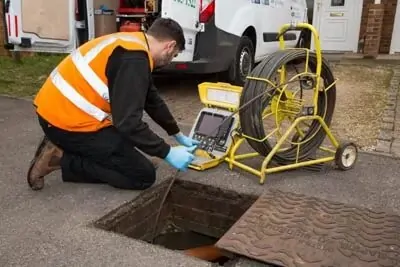What Is an Easement and Why Should UK Buyers Care?
What is an easement in UK property law? Discover the types of easements, legal implications, and how they affect your rights when buying a home in the UK. A must-read for first-time buyers and property owners.

 Easements in Property — The Overlooked Legal Detail That Could Affect Your Homeownership
Easements in Property — The Overlooked Legal Detail That Could Affect Your Homeownership

If you’re buying a house in the UK one legal term that often causes confusion—but carries serious consequences—is the easement .
An easement is a legal right to use someone else’s land for a specific purpose — and vice versa.
Whether it's a right of way through a neighbour’s garden or access to a shared drain easements are commonplace in UK property transactions . But failing to understand them can lead to boundary disputes blocked access or unexpected legal battles .
This guide explains:
What is an easement in the UK?
Common examples that affect homes and land
Why easements matter when buying or selling
What to do if a property has one (or needs one)
 What Is an Easement in the UK?
What Is an Easement in the UK?
Definition:
An easement is a legal right that allows one party to use part of another’s land for a defined purpose .
It does not transfer ownership but grants access or usage rights — typically written into the property's title deeds or established through long-term use.
The Two Key Players:
Dominant Tenement : The property that benefits from the easement
Servient Tenement : The property that grants or supports the easement
 Common Types of Easements in the UK
Common Types of Easements in the UK
1. Right of Way
Allows someone to pass through part of another property (e.g. shared driveway alleyway).
One of the most common types often affecting terraced houses rural land and converted flats .
2. Right to Light
Protects a homeowner’s right to receive natural light through specific windows.
If a neighbour builds something that blocks light you may be able to challenge it legally.
3. Right of Support
Ensures one property (e.g. a flat) is supported structurally by another (e.g. the lower flat or shared wall).
Essential in flats and semi-detached homes .
4. Right to Drainage or Water
Allows one property to drain water through a neighbour’s land or share a sewer pipe.
Often applies to older properties with shared or combined drains.
5. Right to Park
Grants access to a parking area on someone else’s land — may be limited to specific hours or conditions.
 How Are Easements Created in the UK?
How Are Easements Created in the UK?
➤ Express Grant or Reservation
Written into the property’s title deeds (and registered with the Land Registry). Most common in new-builds or converted buildings .
➤ Implied Easement
Not written down but assumed based on historic use necessity or shared development.
➤ Prescriptive Easement
Established through long-term use — usually at least 20 years of continuous and uninterrupted access.
 Why UK Buyers Should Care About Easements
Why UK Buyers Should Care About Easements
Easements affect your legal rights property value and sometimes your enjoyment of the home. You need to ask:
Can I access my property freely?
Will neighbours cross my land regularly?
Am I responsible for maintaining shared access areas?
Could a future extension or fence violate someone's right?
Easements are legally binding and pass to future owners — meaning you inherit the obligations or benefits.
 How to Check for Easements Before Buying
How to Check for Easements Before Buying
Your solicitor or conveyancer should:
Review the title register and title plan
Examine any easement clauses or restrictive covenants
Request information from the Land Registry
Highlight any unregistered easements or implied rights
 Always ask for clarity in writing — especially with shared driveways private roads or older rural properties.
Always ask for clarity in writing — especially with shared driveways private roads or older rural properties.
 Red Flags: When Easements Become a Problem
Red Flags: When Easements Become a Problem
Blocked Access or Disputes
A neighbour fencing off a path you legally use.
Unclear or Unregistered Rights
No official record but regular use exists — potential for challenge.
Development Restrictions
You can’t build an extension if it blocks someone’s right to light.
Disagreements Over Maintenance
Shared alleyways or parking areas often come with unclear cost responsibilities .
 Can You Remove or Modify an Easement?
Can You Remove or Modify an Easement?
By Agreement : All parties must consent (in writing). Usually requires a deed and solicitor support.
By Non-Use : Easements can lapse if unused for a long time (but this is rare and hard to prove).
Court Order : If the easement is unclear unfair or obstructive legal action may be taken—but it’s time-consuming and costly.
Most buyers accept easements but legal clarity is key before committing to a purchase.
 Real-World Example
Real-World Example
You find a charming cottage with a rear garden—but the neighbours walk across it daily to reach their bin alley.
This is likely a right of way easement .
If that right is registered you can’t block it even if it disturbs your peace.
However if it’s unregistered and never formalised it may be challenged or regulated.
 Summary: Easements in UK Property Explained
Summary: Easements in UK Property Explained
Aspect | Why It Matters |
|---|---|
Legal Status | Binding on current and future owners |
Affects Access | Yes – walkways paths driveways |
Affects Development | Yes – can limit extensions or modifications |
Affects Sale Value | Possibly – especially with disputed access |
Buyer Action Required | Legal check via solicitor pre-exchange |
Editorial Standards & Expertise

WiseNest Editorial Team
Our expert editorial team consists of seasoned technology professionals, business strategists, and digital transformation specialists with over 15 years of combined experience in helping businesses navigate the digital landscape.
This content is optimized to answer these questions comprehensively.
What is an easement in UK property law?
An easement is a legal right for someone to use another person’s land for a specific purpose—like access, drainage, or utilities. Easements are typically recorded in the title deeds and “run with the land.”
Join 10,000+ Smart
First-Time Buyers
Get expert homebuying guidance, AI-powered document analysis, and step-by-step support for your first property purchase.



Growing community
Already have an account? Sign in here
Related Articles
Continue exploring our insights and tips

Should You Get a Drainage Survey When Buying a Home?
Thinking of buying a house? Learn why a drainage survey can save UK buyers thousands in repairs. Discover costs, benefits, red flags, and whether it’s worth it in 2025.

Buying a Flat Above a Shop: What You Need to Know
Thinking of buying a flat above a shop? This 2025 UK guide explains the pros, cons, mortgage challenges, and legal checks you need to make before committing.

Is Buying a Home with Tenants a Good Idea?
Thinking of buying a property with sitting tenants? This 2025 UK guide explains the pros, cons, legal issues, and financial risks of buying a tenanted home. Learn if it’s the right move for you.